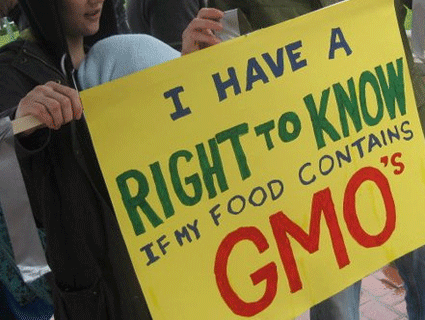
Fuse/Thinkstock
Last month, when Vermont passed a new law requiring food and beverage manufacturers to label genetically modified foods, Big Food went ballistic. The Grocers’ Manufacturers’ Association, a trade group that represents Monsanto, General Mills, Coca-Cola, and other giant food companies, warned that the labeling law—the first of its kind in the nation—was “costly” and “critically flawed,” and vowed to sue the state to force it to scrap the measure.
At the heart of the debate is the question of whether states should be allowed to regulate food labeling. The GMA argues that any laws requiring manufacturers to label genetically modified food should come from the federal government—and only if the feds deem GM foods are a health risk. But Vermont lawmakers argue that the state should be able to move forward on its own. “We believe we have a right to know what’s in the food we buy,” Peter Shumlin, the state’s Democratic governor, said in a statement last month.
The GMA insists that genetically modified foods are perfectly safe and pose no risks to human health: “They use less water and fewer pesticides, reduce crop prices by 15-30 percent and can help us feed a growing global population of seven billion people,” the group noted in a press release. But Vermont lawmakers maintain the new law is more about transparency than health, and that customers have a right to know whether genetically modified organisms are in their food. There’s popular support for that idea: 79 percent of Vermonters support labeling genetically modified food, according to a recent poll conducted by the Castleton Polling Institute for VTDigger, a Vermont media outlet.
That polling doesn’t seem to have affected the GMA’s position. The group hasn’t sued yet. But when I called to ask if the GMA still planned to sue Vermont, a GMA representative referred me to last month’s statement, which promises a lawsuit “in the coming weeks.” Get ready, Vermont—Big Food is coming for you.













